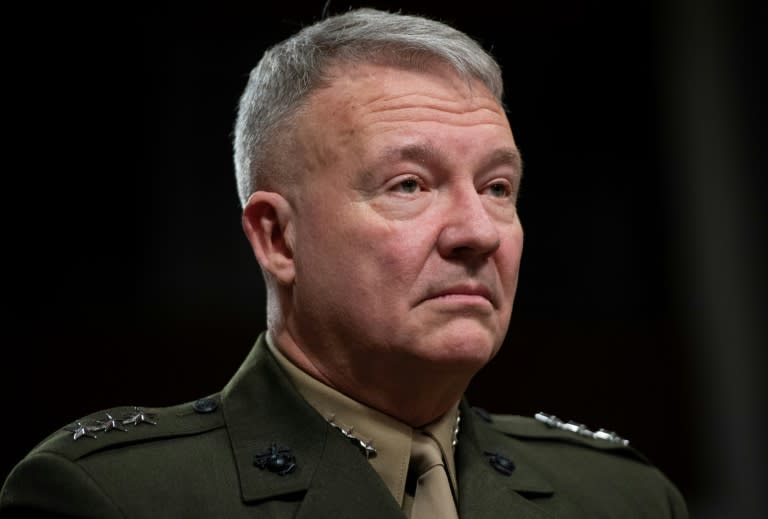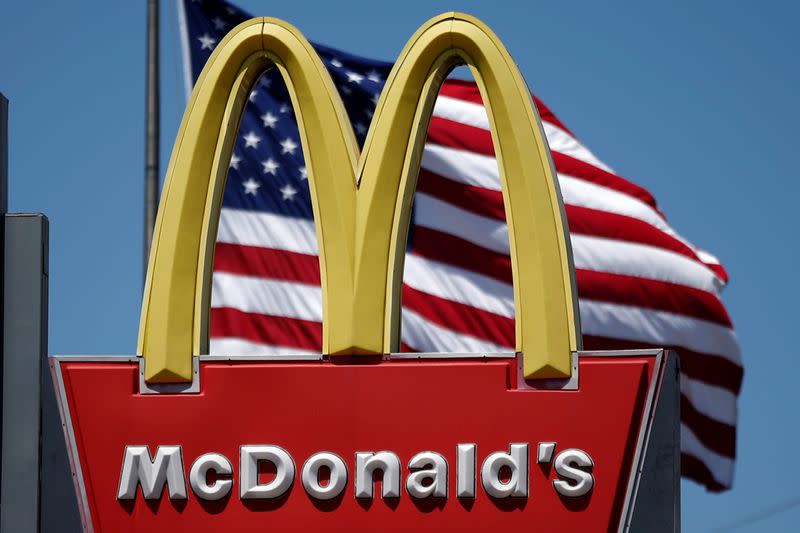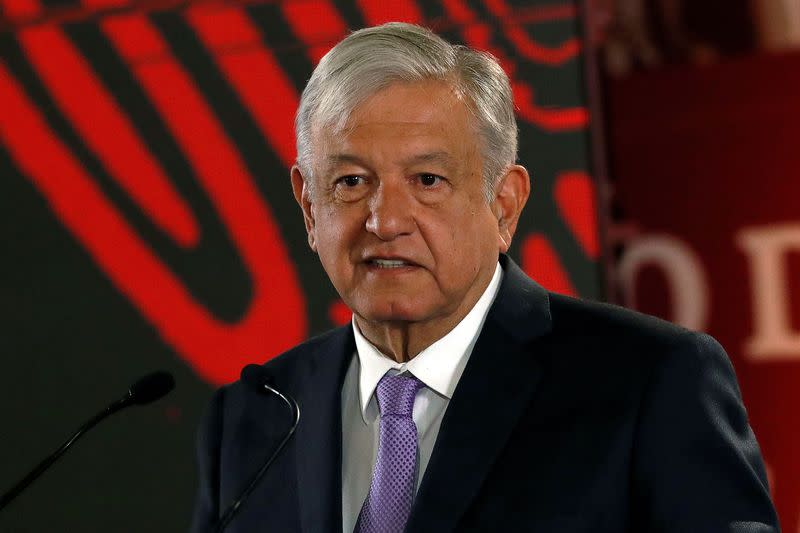AFP•March 10, 2020

Marine Corps General Kenneth F. McKenzie, head of the US Central Command, said that the Taliban has shown the "capability" of defeating jihadists with the Islamis State group (AFP Photo/SAUL LOEB)More
Washington (AFP) - The Taliban has shown that it can fight and defeat Islamic State group jihadists in Afghanistan, a top US general said Tuesday, revealing for the first time that it had done so in recent months with "very limited" US military support.
"It was a bloody mess, but they did it," General Kenneth McKenzie, head of the US Central Command, said of the Taliban's virtual defeat of IS in Afghanistan's Nangarhar province in recent months.
McKenzie disclosed the US military support for the Taliban operation in congressional testimony, but provided few details on the role played by US forces.
He was called to testify about the situation in Afghanistan following a peace deal that the United States signed with the Taliban February 29 in Doha
Under the agreement, the United States committed to the withdrawal of all foreign fores within 14 months in return for a Taliban pledge to tackle jihadists such as the Islamic State group and Al-Qaeda, and hold peace talks with the Afghan government.
"Over the last several months in eastern Afghanistan we've watched the Taliban compress and crush the ISIS presence on the ground in southern Nangarhar province, and they've been very effective doing that," McKenzie said, using an alternate acronym for Islamic State.
"There was very limited support from us," he said, without elaborating further on the role US forces played.
"They have demonstrated a capability to do it. It was a bloody mess, but they did it," the US general said.
"ISIS really now no longer holds ground in Nangarhar province."
McKenzie, however, said he was "less optimistic" about the Taliban taking on Al-Qaeda, the jihadists who plotted the September 11, 2001 attacks on the United States from their base in then Taliban-ruled Afghanistan.
"That's something they're going to have to demonstrate that has not yet been demonstrated," McKenzie said.
McKenzie reminded lawmakers that the Taliban must meet its commitments for there to be a withdrawal.
"We don't need to trust them, we don't need to like them, we don't need to believe anything they say, we need to observe what they do," McKenzie said.
McKenzie said that the US military has yet to prepare a military plan for a total withdrawal from Afghanistan.














